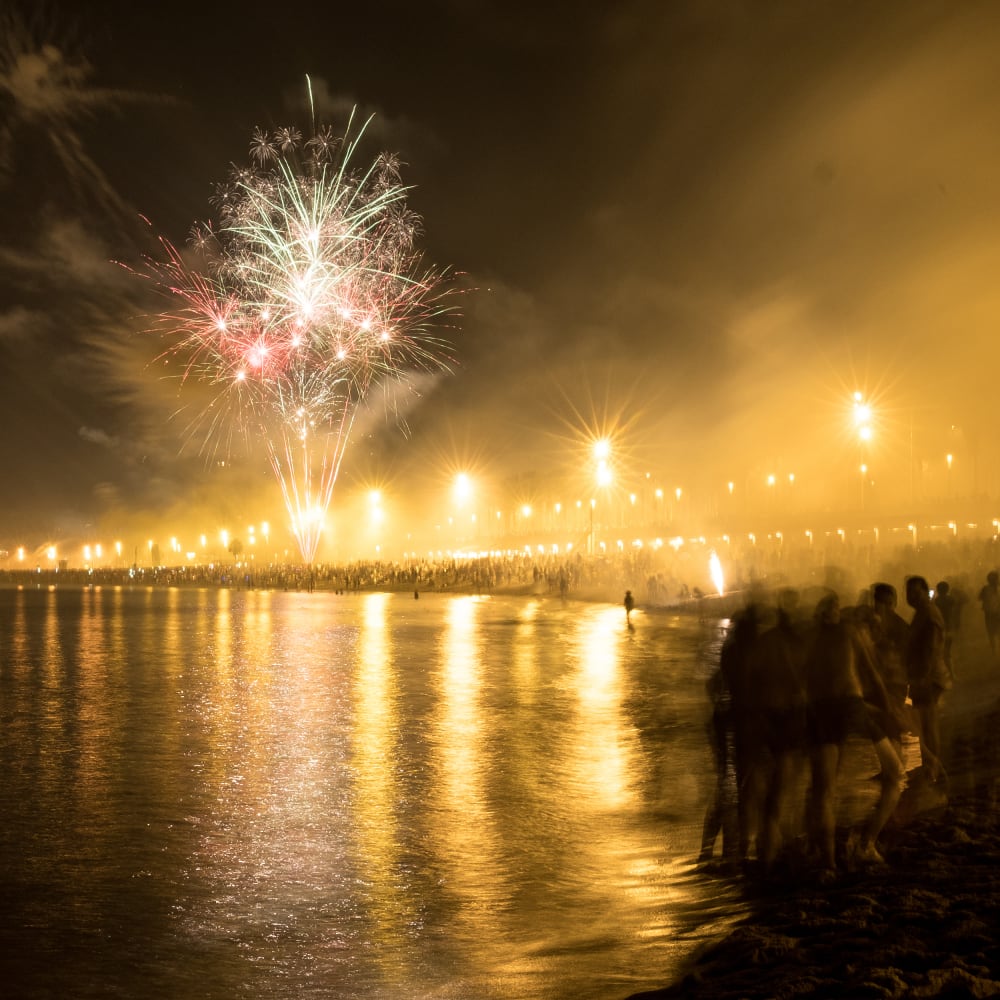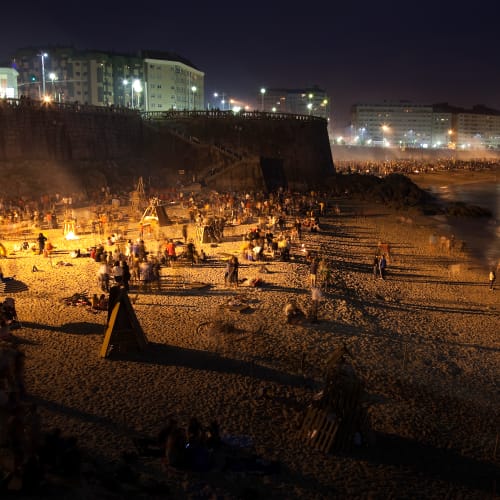Beaches Ablaze: Bonfires of San Juan
Don Harris | May 2016




Dear Friends,
The summer solstice marks the time when the hours of darkness are shortest, and the hours of sunlight are at their peak. It is the beginning of summertime - a time of celebration now that winter storms are a thing of the past and springtime growth has begun to bear fruit. I grew up in New England and know what a feeling of elation I felt when Memorial Day and June finally arrived and the seemingly endless gray skies are but a memory. As I write to you from Virginia, I find the newly emergent fresh leaves of the woods, punctuated with elusive dogwood, to be exhilarating and life affirming.
I have a very good friend named Pablo who lives in Vigo, just north of Portugal. He told me about an ancient summer solstice festival celebrated across Spain where bonfires literally burn up the past, ushering in a new season of promise. They occur during the Fiesta de San Juan, a religious holiday, but the original celebrations probably began thousands of years before San Juan was even born!
My friend Pablo is a young man of many interests: he treasures his sleek BMW motorcycle, he excels in web design as a profession. Despite these modern interests, he has a particular enthusiasm for all aspects of his native Galicia, from history to architecture to local customs. His interest in photography brings his fascinations to life, and he often shares them with me via email or Flickr. Mixed in with the photos are notes about his active and joyful life with his beloved Rosana.
I’ve heard of many ancient celebrations that feature blazing bonfires throughout Europe and the Mediterranean. In Spain these bonfires are usually found along the coast of the Mediterranean Sea and the Atlantic Ocean. The primitive origin of the blazing bonfires of San Juan, whether in Alicante or Galicia, began to encourage the sun, so that it would burst forth in the solstice, forcing the gray days of winter to flee.
The bonfires became a way of celebrating the arrival of summer: San Juan's night is full of bonfires, fireworks, music, eating, drinking and dancing. I knew my friend Pablo could tell me all about them, and I was not disappointed.
Here is his perspective:
The primitive origin of the celebration is to give force to the sun with fire, to help summer to come and force winter to go. But over time it took on a religious sense (San Juan) and a purification sense, where the bonfires were used to burn old furniture, clothes of the sick or those who had died, anything that needed to be purged. It's like celebrating the arrival of the summer, leaving behind the raw winter.
There are many rituals on this night (although many young people are devaluing it, converting the night into a simple alcohol-party with a fire on the beach).
The true rituals vary from bathing in the sea in the night, to jumping the bonfires.
In Valencia, for example, you need to jump seven times over the bonfire to attract the good luck. In Galicia - you know, we're hard people - the magic number grows to nine. In the Balearic Islands the people don’t jump, but throw something old into the fire. In Sevilla and Malaga, the tradition says you must clean your face at midnight. There are many traditions, but almost all have a common denominator: to renew, to clean, to take energy, to get luck, etc.
Mostly this is a family and friends celebration. If it is a little village, there is probably an "official" big bonfire in the main square for all the people. If it is a bigger place there will be some big "official" bonfires, but a lot of people have their own celebrations in their backyards. In Coruña or Panxon, they are only allowed on the beach, to prevent wildfires. The image of Riazor beach in Coruña on San Juan’s night is awesome. The aftermath, of course, is not as beautiful (14 tons of garbage was pulled of the beach last year).
Some cities are issuing cards to avoid Coruña-style lack of control, so now only "official" or family bonfires are allowed. This helps to prevent accidents, so there are only two or three, but bigger ones. I think this is a good initiative because it allows the city to make some spectacles around the bonfires, to keep present the old traditions, such as Queimadas, Trasgos (devils), etc.
The food in Galicia is typically sardines, which are grilled over fire and served with corn, bread, wine and a Queimada.
(A Queimada is an alcoholic punch found in Galicia, made with a distilled wine liquor called aguardiente or orujo. It is seasoned with herbs, coffee beans, lemon peel and other spices. Traditionally an incantation is recited, adding special powers to the drink before it is set on fire. Warm cupfuls are scooped from the flaming bowl. This drink is meant to purify the body and chase away demons.)
Probably we will celebrate San Juan in Rosana's family house, maybe go down to the beach to take a look, but not too late.
Un abrazo – Pablo
While I don’t think I will jump over a fire this June, I find vicarious joy in this exuberant welcoming of the summer. I can imagine thousands of people celebrating the Fiesta of San Juan all across Spain - dancing, singing, jumping and plunging into the ocean. What a site it must be!
Saludos,
Don Harris

